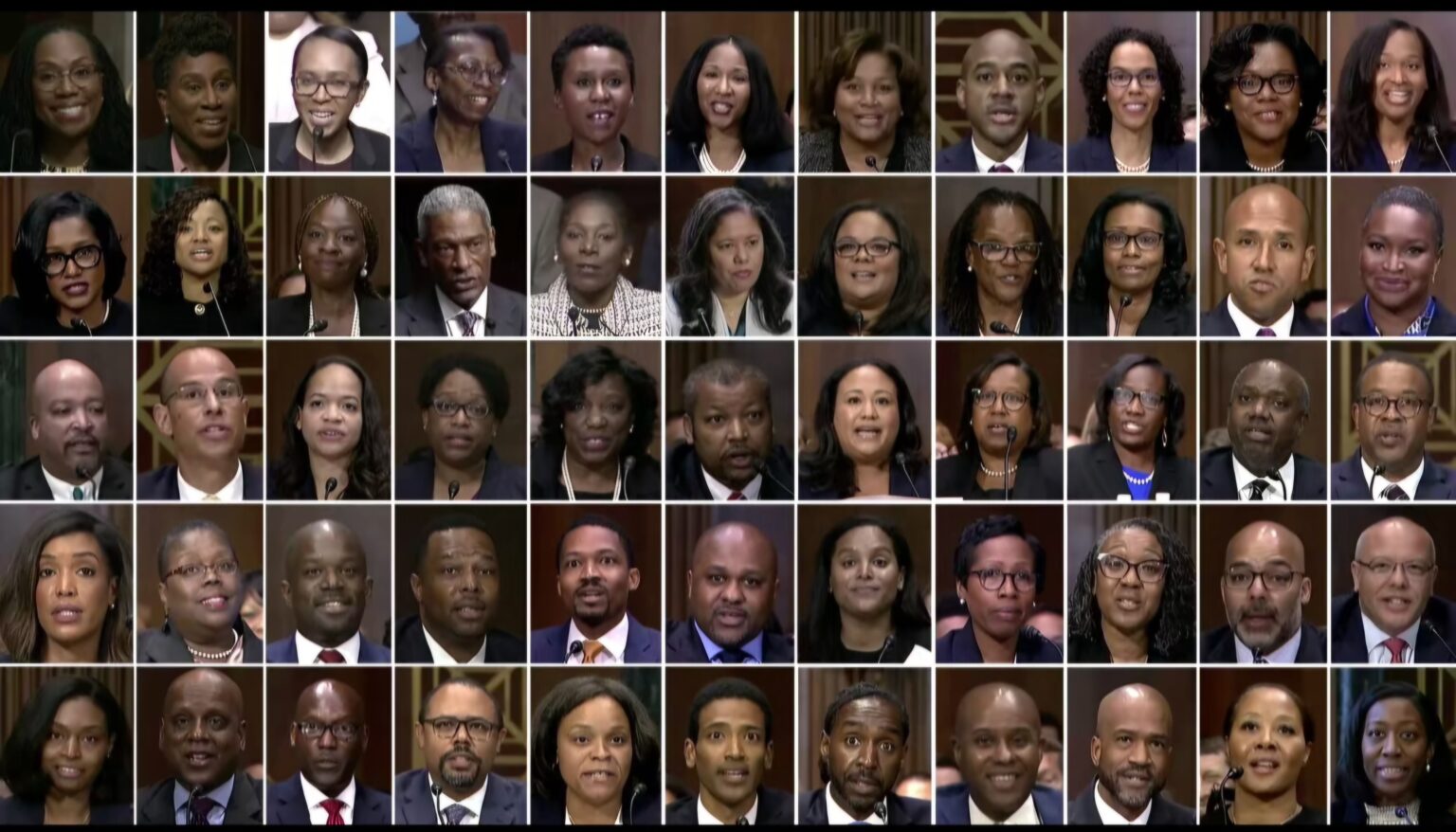As President Joe Biden approaches the final chapter of his presidency, he’s pulled off a move that could easily be described as a “chessmaster’s checkmate” in the game of American equality. In a historic push for representation, Biden has appointed over 65 African American judges to the federal bench, cementing a legacy of diversity and inclusion that his successors might find hard to match. Among these appointees, a significant number are African American women, signaling a deliberate effort to make the judiciary more reflective of the country it serves.
President Biden’s judicial appointments are not only remarkable for their sheer number but also for their unprecedented diversity. With notable figures such as Judge Ketanji Brown Jackson, who became the first Black woman to serve on the U.S. Supreme Court, and numerous others now serving at various levels of the federal judiciary, Biden’s strategy has been both impactful and symbolic. Judges like Candace Jackson-Akiwumi, who now serves on the U.S. Court of Appeals for the Seventh Circuit, and Tiffany Cunningham, the first Black woman appointed to the Federal Circuit, are just a few examples of Biden’s commitment to breaking barriers.
Beyond the headline-making appointments of African American judges, Biden’s picks have also included individuals from Latino, Asian American, and Native American communities. When analyzing the numbers, the breakdown of Biden’s judicial appointments paints a vivid picture of progress. Approximately 75% of his judicial nominees have been women, with people of color making up nearly two-thirds of his appointments. This kind of diversity is a far cry from the traditionally homogenous face of the judiciary and serves as a testament to Biden’s promise to prioritize inclusion.
But this move isn’t just about representation; it’s about rewriting the playbook for what the judiciary should look like. For decades, critics have pointed out the disparities in the judicial system—both in its makeup and in its outcomes. By appointing judges who bring diverse perspectives and lived experiences to the bench, Biden is aiming for a judiciary that understands the nuances of the nation’s challenges and delivers justice that resonates with all Americans.
In true Biden style, this monumental achievement isn’t without a touch of humor. One can only imagine the twinkle in the President’s eye as he envisions his successors walking into an office lined with photos of the most diverse group of federal judges in U.S. history. Picture the hypothetical musings: “Checkmate,” he might mutter to himself, chuckling at the foresight of this ultimate legacy move.
And what will President-elect grapple with? A judiciary that mirrors America—vibrant, multifaceted, and unapologetically inclusive. It’s a legacy that speaks not only to Biden’s vision but also to the transformative power of diversity in governance.
As the dust settles on his presidency, Biden leaves behind a blueprint for how inclusion and equity can be woven into the highest levels of public service. His judicial appointments are more than just numbers; they’re a statement—a loud, proud affirmation that the doors of justice should swing open for everyone. While future presidents might play the game differently, it’s clear that Biden’s move was one for the history books: a masterstroke in the name of equality, justice, and representation. Checkmate, indeed.
